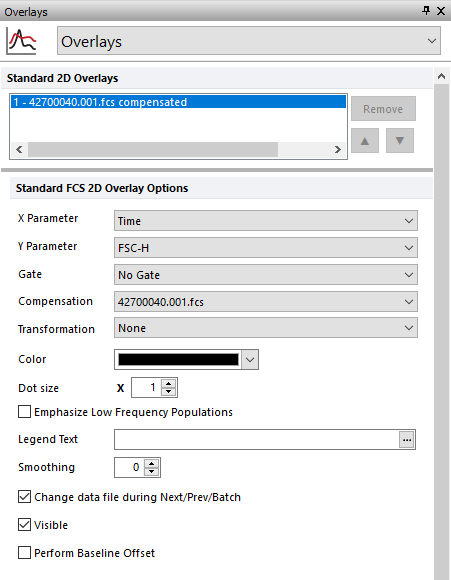Formatting Options
FCS Express provides users with the ability to customize virtually every aspect of each analysis object (e.g. text boxes, plots, histograms, statistics tables, pictures, and more).
This section discusses common formatting options available to all objects in a layout (List 1 below). However, many of the objects in FCS Express have also specific formatting options which you can change to bring out the important features of your data (List 2 and List 3 below).
1. Common Formatting Options for all objects
•Fill
•Size
2. Specific Formatting Options for Plots
•1D Plots
•2D Plots
Common Options for all 2D Plots
3. Specific Formatting Options for Other Plots
The Formatting Options dialog can be accessed in one of three ways:
1.Selecting one or multiple object(s) and then using the appropriate commands from the Format→Object Options group in the ribbon
2.Double click on an object.
3.Right-click on an object and choose Format from the pop-up menu.
In the Formatting Options dialog, all formatting options available for the selected object(s) are accessible from the drop-down menu at the top of the dialog, and are organized in different categories (e.g. General, Fill, Border, Size ... amongst others depending on the object being edited).
The Formatting Options dialog will apply changes as they are made across the selected plots. You can also restore any object to its previous state by using the Undo button in the Quick Access Toolbar.
An example of the dockable formatting window is shown in Figure 5.288. The dockable format window will open by default docked on the right side of the screen if no other dockable windows are currently docked. If a window is currently docked, the formatting window will appear as a floating window. If a layout is saved with a dockable window opened, that position will be saved and will be used every time that dockable window will be opened. If there is already a window docked into the position where a newly opened window used to be, then the newly opened window will just pop up in the middle of the screen. Users may open as many separate formatting windows as they would like and they may be docked together for easy access.

Figure 5.286 Dockable Formatting Window.
